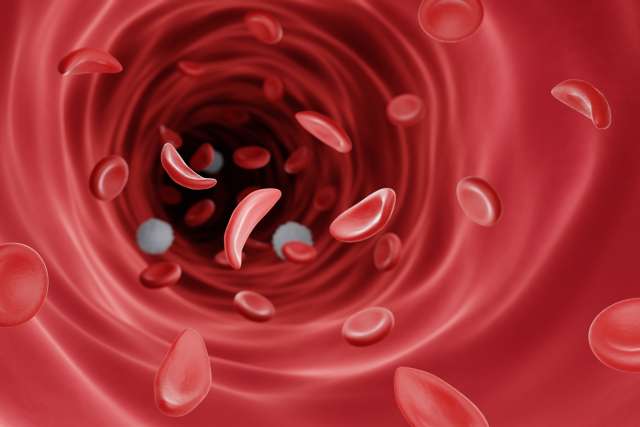UCLA scientists have for the first time identified a protein that plays a key role in regulating how blood stem cells replicate in humans.
This discovery lays the groundwork for a better understanding of how this protein controls blood stem cell growth and regeneration, and could lead to the development of more effective therapies for a wide range of blood diseases and cancers.
The study, which was led by Eli and Edythe Broad Center of Regenerative Medicine and Stem Cell Research member Dr. John Chute, was published online last month ahead of print in the Journal of Clinical Investigation.
Hematopoietic stem cells (HSCs) are the blood-forming cells that have the remarkable capacity to both self-renew and give rise to all of the differentiated cells (fully developed cells) of the blood system. HSC transplantation provides curative therapy for thousands of patients annually. However, little is known about the process through which transplanted HSCs replicate following their arrival in human bone marrow. In this study, the authors showed that a cell surface protein called protein tyrosine phosphatase-sigma (PTP-sigma) regulates the critical process called engraftment, which is how HSCs start to grow and make healthy blood cells after transplantation.
Mamle Quarmyne, a graduate student Chute’s lab and first author of the study, demonstrated that PTP-sigma is produced (expressed) on a high percentage of mouse and human HSCs. She showed further that genetic deletion of PTP-sigma in mice markedly increased the ability of HSCs to engraft in transplanted mice.
In a complementary study, Quarmyne demonstrated that selection of human blood HSCs which did not express PTP-sigma led to a 15-fold increase in HSC engraftment in transplanted immune-deficient mice. Taken together, these studies showed that PTP-sigma suppresses normal HSC engraftment capacity and targeted blocking of PTP-sigma can substantially improve mouse and human HSC engraftment after transplantation.
Chute and colleagues showed further that PTP-sigma regulates HSC function by suppressing a protein, RAC1, which is known to promote HSC engraftment after transplantation.
“These findings have tremendous therapeutic potential since we have identified a new receptor on HSCs, PTP-sigma, which can be specifically targeted as a means to potently increase the engraftment of transplanted HSCs in patients,” said Chute, senior author of the study and professor of hematology/oncology and radiation oncology at UCLA. “This approach can also potentially accelerate hematologic recovery in cancer patients receiving chemotherapy and/or radiation, which also suppress the blood and immune systems.”
Chute’s team is now working with fellow UCLA researchers to test small molecules for their ability to specifically inhibit PTP-sigma on blood stem cells. If these studies are successful, they aim to translate these findings into clinical trials in the near future.
This research was supported by funding from the National Institute of Allergy and Infectious Diseases and National Heart, Lung, and Blood Institute. Additional funding was provided by the UCLA Broad Stem Cell Research Center through philanthropy and other sources.



